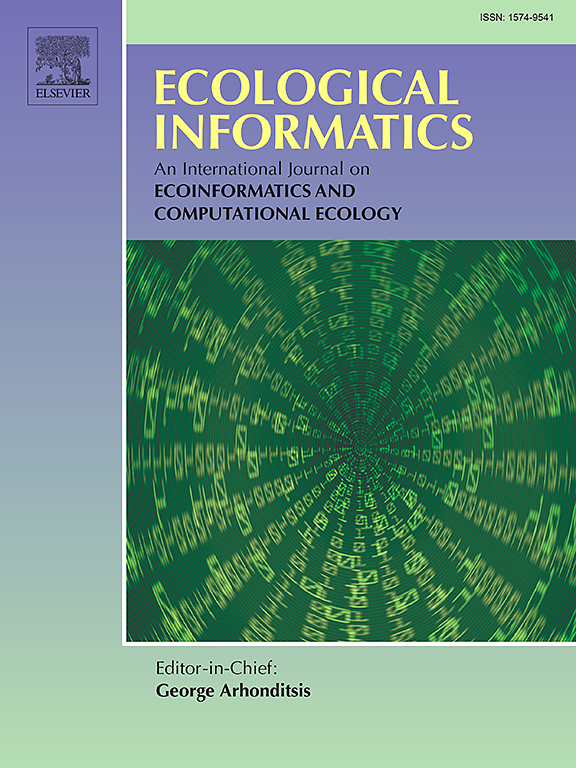Gaussian process regression as a powerful tool for analysing time series in environmental geochemistry
IF 5.8
2区 环境科学与生态学
Q1 ECOLOGY
引用次数: 0
Abstract
Monitoring programs require more advanced data management for the registered time series. Classical temporal series decomposition cannot fulfil current needs regarding adequate data representation, optimization of the spatial-temporal sampling resolution and predictive power. In the manuscript at hand, we will demonstrate that Gaussian process regression (GPR) models are a vital machine-learning tool to interpret temporal series, improving understanding of geochemical cycles, providing input data for geochemical models and acting as a guide for future decisions in environmental monitoring. Firstly, we explore the impacts of sampling frequency in the GPR performance for temporal series with variable lengths and sampled frequencies of water discharges. On a second approach, we present the strengths and weaknesses between classical decomposition of temporal series and GPR results for a case study: a 14-year record of water discharge, suspended particulate matter and antimony concentrations in the Garonne River. Our results suggest that (i) even short temporal series with low sampling resolution can be accurately characterized by GPR when presenting well defined seasonal patterns, and (ii) GPR provides more detailed and robust support than classical statistics to identify processes responsible for multi-scale geochemical signals. This work provides a reference for researchers, engineers, and stakeholders for more reliable monitoring, understanding, and managing aquatic ecosystems.
高斯过程回归是分析环境地球化学时间序列的有力工具
监测计划需要对登记的时间序列进行更先进的数据管理。传统的时间序列分解方法无法满足当前在充分数据表示、优化时空采样分辨率和预测能力方面的需求。在手头的手稿中,我们将证明高斯过程回归(GPR)模型是解释时间序列的重要机器学习工具,可提高对地球化学循环的理解,为地球化学模型提供输入数据,并为环境监测的未来决策提供指导。首先,我们探讨了采样频率对具有不同长度和采样频率的排水时间序列的 GPR 性能的影响。其次,我们以加龙河 14 年的排水、悬浮颗粒物和锑浓度记录为案例,介绍了时间序列的经典分解与 GPR 结果之间的优缺点。我们的研究结果表明:(i) 即使是采样分辨率较低的短时间序列,在呈现明确的季节性模式时,GPR 也能准确地描述其特征;(ii) GPR 比经典统计学提供了更详细、更可靠的支持,以确定多尺度地球化学信号的过程。这项工作为研究人员、工程师和利益相关者提供了参考,以便更可靠地监测、了解和管理水生生态系统。
本文章由计算机程序翻译,如有差异,请以英文原文为准。
求助全文
约1分钟内获得全文
求助全文
来源期刊

Ecological Informatics
环境科学-生态学
CiteScore
8.30
自引率
11.80%
发文量
346
审稿时长
46 days
期刊介绍:
The journal Ecological Informatics is devoted to the publication of high quality, peer-reviewed articles on all aspects of computational ecology, data science and biogeography. The scope of the journal takes into account the data-intensive nature of ecology, the growing capacity of information technology to access, harness and leverage complex data as well as the critical need for informing sustainable management in view of global environmental and climate change.
The nature of the journal is interdisciplinary at the crossover between ecology and informatics. It focuses on novel concepts and techniques for image- and genome-based monitoring and interpretation, sensor- and multimedia-based data acquisition, internet-based data archiving and sharing, data assimilation, modelling and prediction of ecological data.
 求助内容:
求助内容: 应助结果提醒方式:
应助结果提醒方式:


